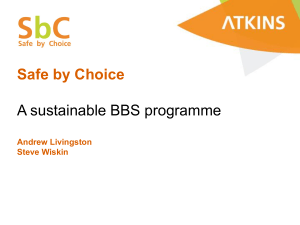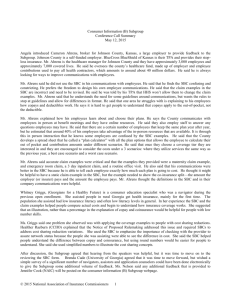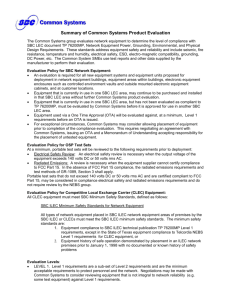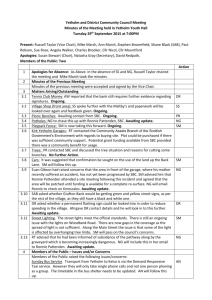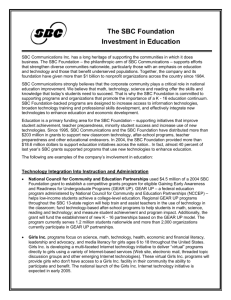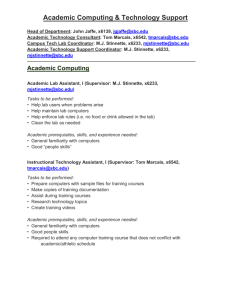MA Ancient History - University of Kent
advertisement
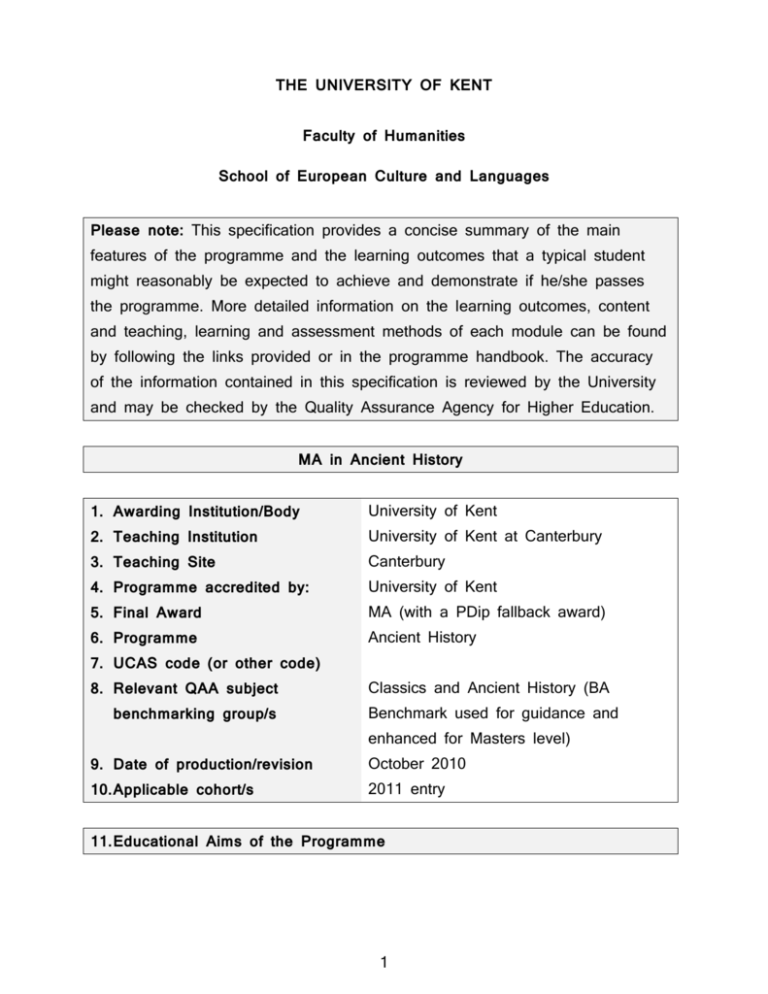
THE UNIVERSITY OF KENT Faculty of Humanities School of European Culture and Languages Please note: This specification provides a concise summary of the main features of the programme and the learning outcomes that a typical student might reasonably be expected to achieve and demonstrate if he/she passes the programme. More detailed information on the learning outcomes, content and teaching, learning and assessment methods of each module can be found by following the links provided or in the programme handbook. The accuracy of the information contained in this specification is reviewed by the University and may be checked by the Quality Assurance Agency for Higher Education. MA in Ancient History 1. Awarding Institution/Body 2. Teaching Institution 3. Teaching Site 4. Programme accredited by: 5. Final Award 6. Programme 7. UCAS code (or other code) 8. Relevant QAA subject benchmarking group/s 9. Date of production/revision 10. Applicable cohort/s University of Kent University of Kent at Canterbury Canterbury University of Kent MA (with a PDip fallback award) Ancient History Classics and Ancient History (BA Benchmark used for guidance and enhanced for Masters level) October 2010 2011 entry 11. Educational Aims of the Programme 1 The programme aims and outcomes have references to the subject benchmarking statement (SBC) for Subjects Classics available at http://www.qaa.ac.uk/academicinfrastructure/benchmark/statements/Classics.pdf and http://www.qaa.ac.uk/academicinfrastructure/benchmark/statements/Classics.asp. The programme aims to: 1. Provide research training in the subject area of Ancient History (SBC 2.5). 2. Expand students’ depth of knowledge of key subject areas in Ancient History (SBC 2.5). 3. Attract outstanding students, irrespective of race, background, gender or physical disability from both within the UK, and EU, and also from overseas (SBC 2.10, 2.12-2.14). 4. Develop new areas of postgraduate teaching in response to the advance of scholarship (SBC 2.7-2.9). 5. Provide the students with skills to equip them for a further career either for doctoral research in Ancient History or in employment with through the use of these transferable skills (SBC 3.2, 4.7). 6. Develop the students' competence in applying skills to analysis of a diverse body of ancient evidence (SBC 2.6, 3.5, 3.6). 7. Develop the critical and analytical powers of the student in relation to the ancient material (SBC 3.5, 3.6). 8. Provide the student with the skills to adapt and respond positively to change (SBC 2.6-2.9). 9. Develop critical, analytical problem-based learning skills and the transferable skills to prepare the student for graduate employment (SBC 2.5, 3.5, 4.7). 10. Enhance the development of the students' interpersonal skills (SBC 3.7). 11. Provide the student with opportunities for shared multidisciplinary learning with archaeology, religious studies and philosophy (SBC 2.5). 12. Assist the student to develop the skills required for both autonomous practice and team-working (SBC 3.5, 4.4). 12. Programme Outcomes 2 The programme provides opportunities for students to develop and demonstrate knowledge and understanding, qualities, skills and other attributes in the following areas. Knowledge and Understanding Teaching/learning and assessment A. Knowledge and understanding methods and strategies used to enable of: outcomes to be achieved and demonstrated 1. A complex range of disciplines, cultural relationships and varied geographical regions. (SBC 3.2, 3.5) 2. The research skills associated Teaching/learning Lead lectures; tutor-led tutorials; student and tutor led seminars, language classes (SBC 4.8). with the use of ancient evidence to produce historical narratives and analyses that engage with Assessment Coursework; written seen/unseen the most recent development in examinations; dissertation (SBC 4.11- research in Ancient History. 4.14). (SBC 2.5-2.9, 3.2) 3. To come to terms with philosophical issues by thinkers of very different cultural and linguistic assumptions from our own. (SBC 2.5, 3.2) 4. To understand the nature of the societies and political systems of antiquity. (SBC 2.5, 3.2) 5. Be familiar with an appropriate and diverse range of primary materials; epigraphy, papyrology, literature, visual material, and history. (SBC 2.5, 3.2, 3.5) 3 6. A broad and systematic knowledge developed within a coherent framework of complementary subjects, including religion, history and ancient languages. (SBC 3.2) 4 Skills and Other Attributes B. Intellectual (thinking) skills: 1. Apply the skills needed for academic study and enquiry. (SBC 3.5) 2. Evaluate research and a variety Teaching/learning Lead lectures; tutor-led seminars; self- of types of information and directed learning the use of research- evidence critically. (SBC 3.5) based teaching materials and methods 3. Synthesise information critically (SBC 5.5-5.7). from a number of sources in order to gain a coherent understanding of theory and practice. (SBC 3.6) Assessment Written exam papers; coursework (essay); dissertation/report (SBC 4.14). 4. Apply strategies for appropriate selection of relevant information from a wide source and large body of knowledge. (SBC 3.6) 5. Utilise problem solving skills. (SBC 3.6) 6. Analyse, evaluate and interpret the evidence underpinning historical, linguistic and literary evidence critically. (SBC 3.5-3.6) C. Subject-specific skills: 5 1. Have an advanced understanding of another culture, whether focused on its literature, thought, art and religion, or its Teaching/learning Seminars; self-directed learning (SBC 4.4). history and political and social organisation, or its material culture; demonstrate a critical engagement with it; develop an Assessment Coursework (essay), dissertation/report (SBC 4.14). informed sense of the similarities and differences between it and our own culture. (SBC 3.2) 2. Have a broad knowledge, developed within a coherent framework, of complementary subjects, drawn from such fields as language, literature, linguistics, philosophy, history, art and archaeology, or themebased topics which cross the boundaries between them (eg religion, gender studies), and periods. (SBC 3.2) 3. Be familiar with and able to evaluate an appropriate and diverse range of primary materials, eg literary, philosophical and historical texts, art objects, archaeological evidence and inscriptions. (SBC 3.2) 6 4. Command a range of techniques and methodologies, such as bibliographical and library research skills, a range of skills in reading and textual analysis, the varieties of historical method, the visual skills characteristic of art criticism, use of statistics (eg in archaeology), philosophical argument and analysis, and analytical grasp of an ancient language (SBC 3.2) D. Transferable skills: 1. Communicate effectively with a wide range of individuals using a variety of means. (SBC 3.5-6) 2. Evaluate his/her own academic performance. (SBC 3.5) Teaching/learning Transferable/key skills are generally incorporated within modules and related to relevant assessments as appropriate. Examples of strategies include: lead 3. Manage change effectively and lectures; tutor-led seminars; self-directed respond to changing demands. learning and the use of research-based (SBC 3.7) teaching materials and methods 4. Take responsibility for personal 4.4). and professional learning and development (Personal Development Planning [SBC 3.5]). 5. Manage time, prioritise workloads and recognise and manage personal emotions and stress. (SBC 3.7) 7 (SBC 6. Understand career opportunities and challenges ahead and begin to plan a career path 7. Information management skills, eg IT skills (SBC 3.7) 8 13. Programme structures and requirements, levels, modules, credits and awards The programme is studied over one year full-time or over two years part-time. The programme is divided into study blocks called modules. Most modules have a credit value of 30 credits. Each 30-credit module represents 300 hours of student learning, endeavor and assessment, including no less than 48 hours direct teaching. All students take required modules. The required modules include a module in the ancient languages at an appropriate level for the individual student. This is in recognition of the fact that ancient languages are not a compulsory element of cognate undergraduate disciplines. Students learn a language at the appropriate level in this programme as they would in the MA in Hellenic and Hellenistic Near East or the MA in Medieval and Early Modern Studies. There is a list of optional modules. A selection of these optional modules will be offered in each year. All students must take modules amounting to 180 credits, making up their choices from the list of optional modules. Required modules must be passed before students can be considered to have completed the programme. Required modules may not be compensated or condoned. Up to 30 credits of the optional modules may be compensated or condoned. The coursework modules for stage 1 are arranged over 2 x 12- week terms. Students who successfully complete stage 1 may proceed to the dissertation which is taken over the 6-week Summer term and the Summer vacation. The dissertation module accounts for 60 credits out of the total of 180. The dissertation will be on a topic that is agreed with a member of the teaching team and will be a maximum of 15000 words long. Students who successfully complete stage 1 but do not complete stage 2 will be eligible for the award of a postgraduate Diploma. The structure of the programme and the modules which make it up, their levels, credits and the terms in which they are taught, are shown below. Details of each module can be found at http://www.kent.ac.uk/studying/modulecatalogue/ 9 Code Title Level Credits Term/s CLXXX Research Skills in Ancient History: Understanding the City in Antiquity M 30 1 A Language module chosen from one of the following according to their existing knowledge. Either Beginners Ancient Greek C 30 1,2 CL 550 CL513 CL647 CL514 Or Beginners Latin Or Intermediate Ancient Greek Or Intermediate Latin Or Advanced Ancient Greek Or Advanced Latin C I I I I 30 30 30 30 30 1,2 1,2 1,2 1,2 1,2 CLXXX Dissertation M 60 2 CLXXX Age, Gender and Ethnicity in the Roman World M 30 2 CLXXX CL819 Rome: The Myth of the Eternal City M M The Greeks in Achamaenid Persia 30 30 1,2 1,2 CL820 The Political, Social and Economic M History of the Hellenistic World: An Overview 30 1,2 Required Modules CL310 CL311 Optional Modules 10 CLXXX CL821 Sexuality, Secrecy and Sin: Ancient Christianity and the world of Late Antiquity Ancient Greek Sciences: Astronomy and Medicine M 30 1,2 M 30 1,2 14. Work-Based Learning Where relevant to the programme of study, provide details of any work-based learning element, inclusive of employer details, delivery, assessment and support for students There is no work-based learning programme relevant to this degree. 15. Support for Students and Their Learning Induction programme, involving advice to students on module choices, opportunities to meet staff and fellow graduate students and welcome to School of European Cultures and Languages. Handbook Library/skills package Student: 15 students with contributions from up to 6 staff members Learning resources: Purchases will be made towards a collection for the library specifically tailored to the specific modules. Ongoing Academic support system providing advice on module choice and programme structure, academic difficulties, progression routes and individual progress. Central support services, including a learning resources centre, a medical centre, a Students' Union (including its Advice and Information Service), a Careers Advisory Service, Counselling Service and Disability Support Unit. 16. Entry Profile Entry Route: For fuller information, please refer to the University prospectus. The minimum age to study a degree programme at the university is normally at least 17 years old by 20 September in the year the course begins. There is no upper age limit. Minimum requirements: Students will be required to hold a degree 11 of Bachelor in a relevant discipline with a grade of 2:1 or its equivalent at least at this or any other university. 12 What does this programme have to offer? An excellent grounding in research skills associated with the study of the history of the ancient world. The opportunity to study social history of Rome alongside the study of the history and literature of the Ancient Near East within a friendly and dynamic department. The development of a broad range of skills that are highly sought after by employers and which open up a wide range of careers to graduates in the academic, journalistic and literary fields. Excellent preparation for further research towards a degree of MPhil or PhD. Personal Profile An interest in the Ancient World, its history, languages and culture. A desire to further develop the skills necessary for independent research. A willingness to engage in informed academic debate about interpretation of ancient texts and other forms of evidence, such as visual images and material culture. Suitable levels of literacy, IT skills related to the field and capacity for independent work. A willingness to acquire research skills for the study of Ancient History. A commitment to develop the skills required for rigorous and exacting scholarship. 17. Methods for evaluating and enhancing the quality and standards of teaching and learning Mechanisms for review and evaluation of teaching, learning, assessment, the curriculum and outcome standards Student evaluations Annual reports External examiners' reports Periodic programme review 13 External accreditation Annual staff appraisal Peer observation Committees with responsibility for monitoring and evaluating quality and standards Staff/Student Liaison Committee (SSLC) School Graduate Studies Committee Faculty Graduate StudiesCommittee Graduate Studies Board Board of Examiners Mechanisms for gaining student feedback on the quality of teaching and their learning experience Student evaluations Staff/Student Liaison Committee Student representation on other committees Staff development priorities include: Minimum expected qualification for appointment PGCHE requirements Staff appraisal scheme Staff development courses Programme team meetings Research seminars Conferences 18. Indicators of quality and standards The Periodic Programme Review of 2004 for the Taught Programmes of Classical and Archaeological Studies highlighted the very good standard of teaching within the section and that students of the programme felt ‘inspired’ and able to ‘realise their potential’. The following reference points were used in creating these specifications: 14 Benchmarking statement/s for Subject Allied to Classics and Ancient History (Including Byzantine Studies and Modern Greek) The University Plan and Learning and Teaching Strategy Staff research Programme Specification Template Annex 3 Ray Laurence 26 October 2010 15

